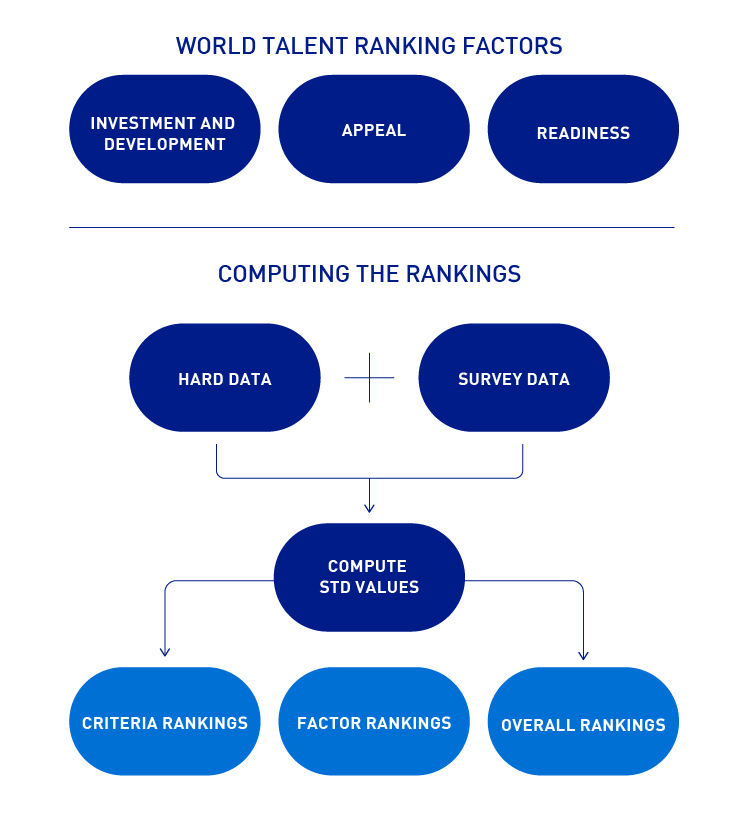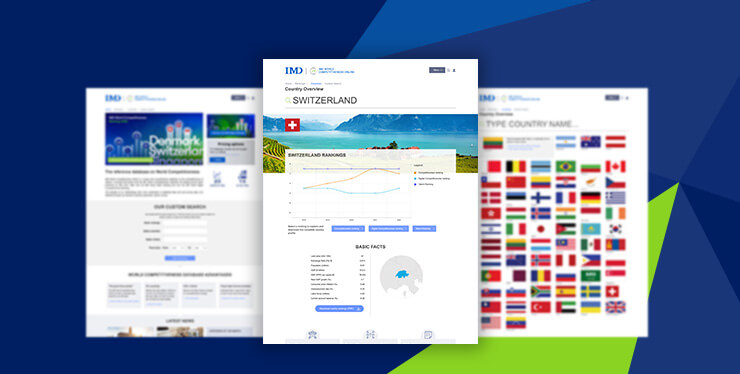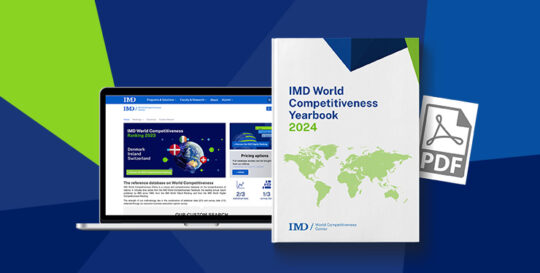


World Talent Ranking
How do we tackle talent?
Eleven years ago, we decided a new way of ranking global talent was in order. We came up with three factors to group our comprehensive set of criteria (survey answers from executives plus hard data), and formulated a methodology that reflected how various economies are performing in terms of sustaining their talent pool.
Our three factors answer three clear questions:
- What’s the state of investment and development in home-grown talent? We trace the size of public investment on education by incorporating an indicator of public expenditure. It also looks at the quality of education through indicators related to pupil-teacher ratios.
- How much does a country appeal to talent? This question goes beyond a mere focus on the local labor force to incorporate the ability of a country to tap into the overseas talent pool by, for instance, cost of living and quality of life.
- What degree of skills and competencies exist in the talent pool? Here, we consider the growth of the labor force, the quality of skills available, the education system, and the experience and competencies of the existing senior managers’ pool.
We don’t include any measures around the regulation of labor and productivity. Why? Our objective is to assess the development and retention of talent, and the regulation of labor and its focus on conflict resolution could be perceived as peripheral to doing so. By the same token, productivity is an outcome of what we want to assess.
2024 Report
Browse the full report below or download it here
Computing the ranking

Register to receive the latest news and events from IMD’s World Competitiveness Center




